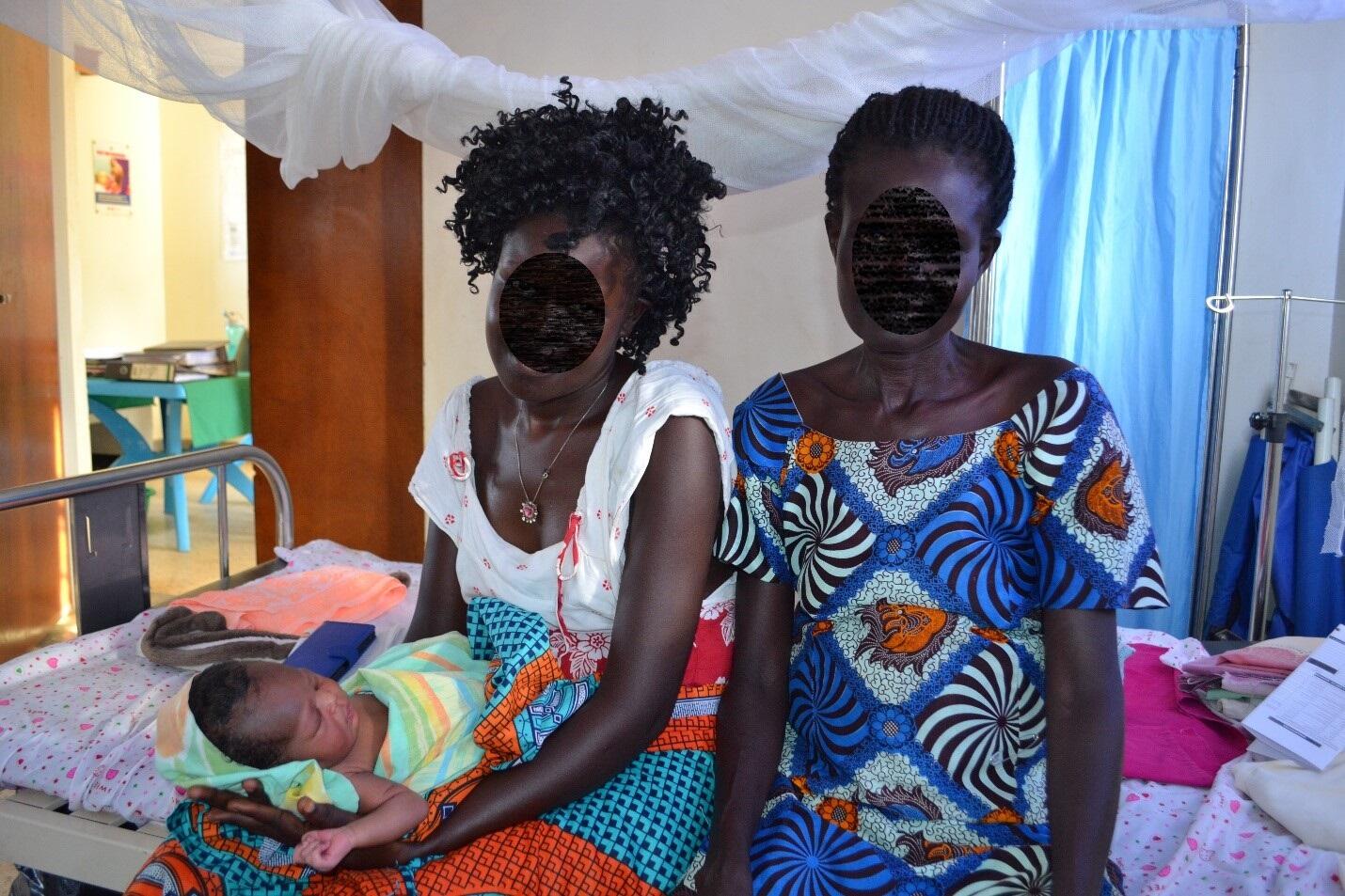Bidi-Bidi refugee settlement, YUMBE: Eighteen –year-old Alice Apunyo (not real names) had just delivered a baby boy at Swinga Health Centre III in Bidi-Bidi refugee settlement in the wee hours of the morning. A primary seven candidate, Apunyo had to drop out of Kejebere primary school after realizing a fellow schoolmate had impregnated her.
“I have named her Bianca Morning because she was born early before the sun rose,” she says with a subtle smile.
Like many adolescent girls, for Apunyo, pregnancy was not by choice. She says that she did not know about family planning until the midwife who supported her deliver provided the information.
In Uganda, one in four girls is either pregnant or has had a child by the age of 19. According to the Uganda Demographic and Health Survey -UDHS (2016), age at first sexual intercourse is 16 years and by age 18, more than 30 percent of adolescents are married. In most circumstances when a girl becomes pregnant, her education may end and her job prospects diminish, making her vulnerable to poverty, exclusion, and gender based violence and poor health. Underage girls are also vulnerable to complications of childbirth including conditions like obstetric fistula.
Key factors underlying these causes are inadequate access to sexuality education, and to accessible, affordable, and appropriate contraception, according to UNFPA’s State of the World Report (2015) ‘Girlhood, not motherhood: Preventing adolescence pregnancy.'
While teenage pregnancy is one of the main reasons girls drop out of school, for Apunyo, this has not deterred her from achieving her dreams.
“I want to complete school and become a midwife,” she says.
Support systems
The State of the World Report (2015) ‘Girlhood, not motherhood: Preventing adolescence pregnancy' recommends a holistic approach including parental and family support to ensure pregnant adolescents are retained in school.
Apunyo’s mother Mercy Yange (not real names) said when she found out her daughter was pregnant - much as she was disappointed - she ensured that she attended antenatal care and delivered at a health center under skilled care.
“I supported my daughter throughout her pregnancy. At the advice of the midwife, I made sure she attended antenatal care seven times because she was still a young girl. Now that she has delivered the baby, I want my daughter to return to school,” Yange said.
Apunyo is optimistic that returning to school is the best choice she can make and is thankful to her mother for the support: “My mother advised me to go back to school as she takes care of my baby. I will have to repeat primary seven but that is fine. I want to have a better future because I have to help my mother and siblings as my father passed on,” she says.
Back to school after pregnancy
Until recent years, the government policy required that pregnant girls be expelled from school. However, in 2018, the Ministry of Education revised the guidelines on school retention and re-entry allowing pregnant girls at least one year of maternity leave. Some school heads have now embraced this policy.
Isaac Toko, the Head teacher, Drajini Hill Primary School in Yumbe district recommends that policy changes on retaining pregnant girls in school should be implemented to allow them fulfil their potentials.
“Girls should not be expelled from school for pregnancy. I once identified a senior four pregnant girl and brought her back to school,” he said.
Phillip Constantine Vuchiri, another Head teacher Mireiyi Primary School in Adjumani district says it is a violation of human rights to expel a pregnant girl from school, remembering an incident where one of his students was found pregnant.
“We as a school stood firm and allowed her to return and sit for her final examinations,” he said.
Addressing teenage pregnancies
UNFPA Uganda works to address these issues by focusing on the protection and fulfilment of girls’ rights through the three transformative goals of ending maternal deaths, ending unmet need for family planning and ending harmful practices against women and girls. UNFPA also advocates supporting girls who become pregnant so they can return to school and reach their full potential.
(NB: Names have been changed to protect the privacy of individuals. Permission to photography was sought)
Story by Evelyn Matsamura Kiapi


